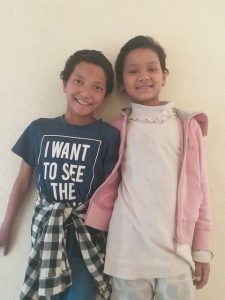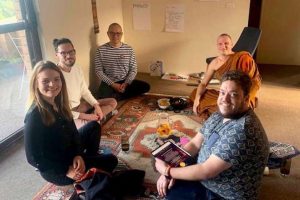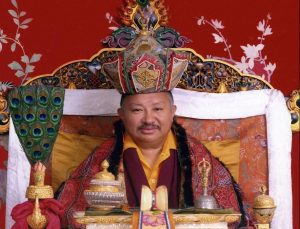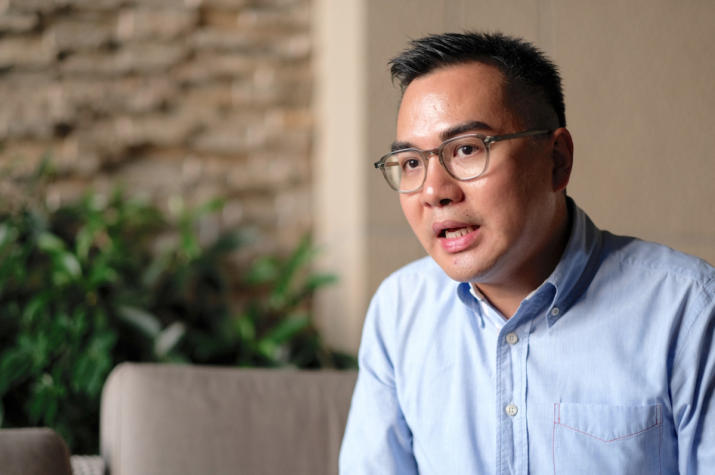
Hong Kong-born David Yeung is a man with a mission. The Buddhist creator of the sustainable living startup group Green Monday and founder of Green Common, the world’s first plant-based green living destination, he is a noted advocate for environmentally friendly and vegetarian lifestyles. David seeks to tackle climate change, food insecurity, health issues, and animal welfare through the Green Monday platform, by helping individuals, communities, and corporations shift toward sustainable, healthy, and mindful living. Such is his drive, the Green Monday movement has so far spread to more than 30 countries, with some 3 million people practicing Green Monday at its Hong Kong origin.
The author of several books on Buddhism and mindfulness, David is also the founder of the Mind Reset Institute, a social enterprise that advocates green mind education and mindfulness-based leadership training for positive social change, and a director of the Search Inside Yourself Leadership Institute, an independent nonprofit organization that offers programs on compassion, empathy, and wisdom to enable people to create a better world.
More recently, David was a keynote speaker at weekend-long workshop in Hong Kong under the theme “Awareness Leadership: Master Your Mind, Master Your Success,” organized by Tergar Asia with the objective of promoting effective leadership based on cultivation of the Buddhist concepts of awareness, compassion, and wisdom. Buddhistdoor Global had an opportunity to sit down with David on the sidelines of the forum to talk about how Buddhism and the green movement align.
Buddhistdoor Global: Could you tell us a little about your background? How did you become involved in initiatives such as Green Monday and the Search Inside Yourself Leadership Institute?
David Yeung: Well, my family is Buddhist; my parents are Buddhists. Of course, when I was a kid, I didn’t know the meaning behind Buddhism so I was only participating in the rituals without really understanding the mantras or sutras. It wasn’t until I was about 24 that I picked up a book on Buddhism and tried to understand the teachings—not just the religion, but the teachings. That was when I realized that Buddhism is really a way of life; it’s about learning the truth about the world and about oneself and how to live a more joyful, meaningful life.
I guess because I come from a Chinese Buddhist background, I was familiar with the Heart Sutra and the Diamond Sutra from an early age. But my father also started practicing Tibetan Buddhism, so I had exposure to that as well, and in recent years I’ve traveled to Nepal, India, and Bhutan. But ultimately, to me, Buddhism is about helping us gain wisdom and compassion, and live life in a more joyful and positive way.
BDG: You describe the Mind Reset Institute (MRI) as a social enterprise that advocates green mind education and mindfulness-based leadership training for positive social change. Could you talk a little about its objectives and mission?
DY: I’ve been promoting and sharing my personal experience of how I apply the Buddhist teachings and the practice of mindfulness in my work and my daily life for more than a decade. I started doing a weekly radio program back in 2006/2007 for about seven years, then I published a few books and wrote columns seeking to connect the Buddhist teachings to our daily circumstances and problems—career problems, health problems, relationship problems, money problems, and so on. But I was doing it more on a personal level, without systemizing or creating an entity. Then a few years ago I was invited to join the board of the Search Inside Yourself Leadership Institute. I then decided that if we’re going to start doing more events related to this subject on a consistent basis, maybe I should set up a more established entity, and that’s when the idea for MRI came into the picture.
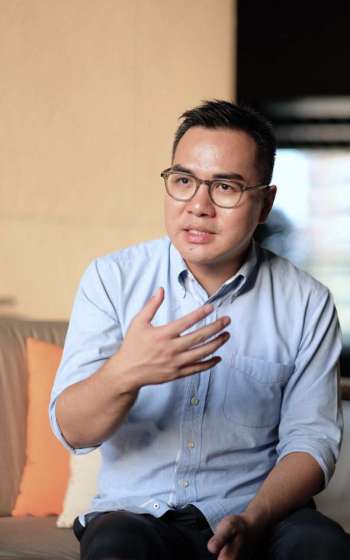
I use the word “reset” because I think the mindfulness is still a little vague for many people. If you tell people on the street that being mindful is good for them, the next question is usually what the heck do you mean by being mindful? How do I learn to be mindful? And it’s sometimes hard to put those ideas into words. I chose the word “reset” because it’s something that every modern person with exposure to digital technology can relate to—I think we need to reset people. Once you explain it in those terms, people get it: it’s like a mind detox.
BDG: When did vegetarianism become central to your personal and professional philosophy?
DY: I became a vegetarian about 17 years ago, in 2001. It was very simple; it was just out of compassion for animals. As I said, I’m from a Buddhist family and my father was already a vegetarian when I turned vegetarian, so I was very much informed by Buddhist philosophy, which is that all living beings treasure their lives, no living beings want to suffer. I don’t want to suffer, so why should I cause suffering for other beings? It becomes almost obvious: if I don’t want someone to harm me, why should I inflict harm on them? Once you recognize this concept, you realize that the daily act of eating meat or seafood clearly involves suffering, and that was the point at which I told myself, “I want to stop.”
Many people want a holistic lifestyle that doesn’t cause harm to animals. I try to do that as much as possible, but at the same time we are aware that in life there are certain things that are unavoidable. I think it’s always about making progress; to me that’s more important than achieving “perfection.” Practically speaking, we need to acknowledge that this is going to be a process. No one goes from never running to completing a 42-kilometer marathon overnight! Like a meditation practice starts with five or 10 minutes a day and grows from there, it’s the same with striving for a humane, environmentally friendly, suffering minimizing lifestyle.
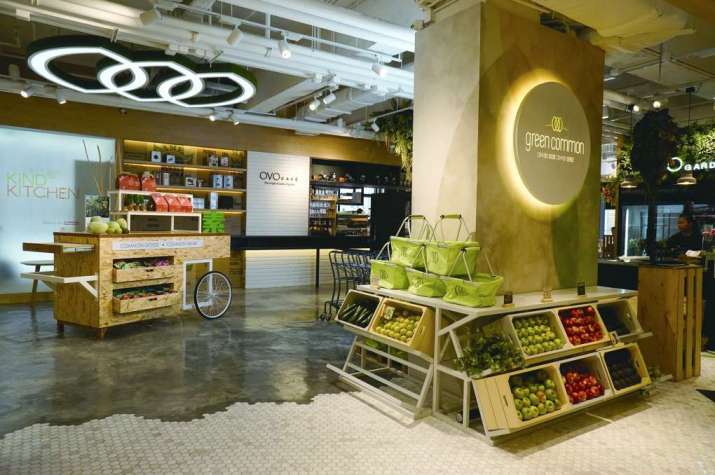
BDG: In the business world, we can see numerous examples of corporations that prioritize earnings above the impact they are having on people, society, or the environment. Do you find that mindfulness and compassion-based training is compatible with such corporate cultures?
DY: I hope that for us—my organization—I hope that we can become a successful company while incorporating and fully integrating mindful, compassionate, ethical values, and demonstrate that these things not only won’t harm your company, they should in fact extend the longevity and sustainability of a business. So I think setting examples and giving people case studies for reference is very important.
If you just tell companies that the way they are doing things is wrong, that they’re all about maximizing profit, and win-loss instead of win-win, they aren’t going to listen because you’re asking them to take a leap of faith. Many industries are very cutthroat, sometimes it’s just win or go home, succeed or fail; there’s no in between. For them, they’ll see it as too much risk.
So I think that from a global perspective, when companies such as Google set an example by saying that injecting these types of values makes them a better business—a more successful, more profitable, more sustainable business—that’s when people will truly start to reflect and realize that there may be a better way of doing things.
BDG: How optimistic are you that today’s young leaders can be encouraged not to make the mistakes of previous generations—for example, can they learn to use the planet’s resources in a more sustainable manner?
DY: I think so, on that note I’m reasonably optimistic. We’re growing up in a different environment than our parents or grandparents, and we’re dealing with different types of challenges and problems. Thirty years ago, 40 years ago, it was just about making a living. People were just coming out of poverty. Now consumers are demanding something else. And whether companies do it deliberately or are just reacting to market changes, they have to change and innovate.
Over the last five years, we’ve seen a global sea change. We’re seeing extremely influential investors put money into this new paradigm of food. We’re seeing conglomerates that we’ve known for decades losing market share—significant market share. Consumers are demanding something else: they’re sick of junk food, sick of dishonest food, sick of companies that do not produce their food and products with integrity. So, if you’re an entrepreneur, of the younger generation or the older generation, whether you do it voluntarily or not, if you want to survive you have to shift toward that direction. And I think that, thanks to the Internet, consumers these days have more power than ever to demand what they truly want.
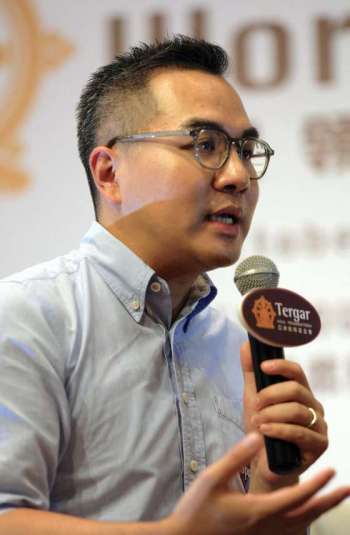
BDG: What’s your view on the current situation for climate change and food insecurity. Do you think there’s still time to avert a global humanitarian crisis?
DY: I think the severity of climate change is already very high. In fact we’re on the verge of doing irreversible damage to the planet, which means to ourselves as well. Although climate change was already an issue 10 years ago, it wasn’t so noticeable. But now—in the summer of 2017, Hong Kong had three typhoons in 10 days, and the storms seem to be getting stronger than ever. In the US, hurricanes Irma, Harvey, and Maria caused massive damage. With extreme temperatures, many places are becoming unlivable, crops are dying, and food production is under a lot of pressure.
When we started Green Monday in 2012, the global population was 7 billion. Today it’s 7.6 billion. That’s 500 million people in five years. And the way we consume is not helping—eating meat, wasting, buying or consuming things that are unnecessary or redundant. So I don’t simply want to inject blind faith by saying, “Oh, things will get better one day.” If a person is sick for too long and doesn’t receive the right medical attention, then that person may die. We can’t just live in blind hope that she will wake up one day and be better. The way we are living is clearly not sustainable.
On the other hand, knowing exactly how urgent the crisis is gives me and my team greater motivation to just say, “Hey, whatever we can do, whatever resources we can pull together, let’s do our best. Whatever awareness we can raise, we’ll do as much as we can.” So, yes, there’s optimism, but I don’t want to mix optimism with blind hope: if we don’t act, then I’m quite sure we are basically doomed, realistically speaking. We need action.
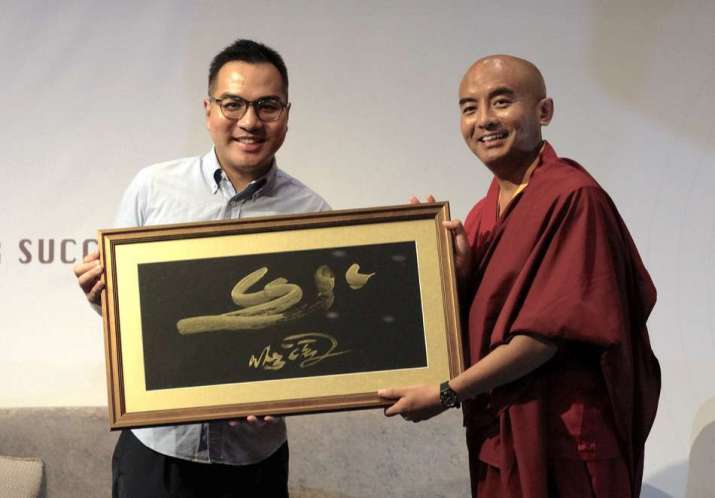
BDG: What kind of changes can the average person make to transition to a greener lifestyle? How can we contribute to, and be part of the movement for change?
DY: In the case of Green Monday, we try to present a much more positive and achievable picture. For example, as the name suggests: “Let’s go plant-based one day a week!” We suggest Monday as a symbolic beginning, but of course you can go green any day you choose. Many people have no idea that what we eat and the way we choose to eat is one of the biggest keys to sustainability on a global scale.
Of course, the other thing we all know is that we must try to conserve energy, and there is some good news on that front, which is that the global shift toward renewable energy is accelerating. To me, the really exciting part is because change is so urgently needed, there is a huge demand for innovation, which is the flip side of the dark, pessimistic view. Innovation must happen. Disruption must happen. So if you have the mind and the heart, if you have the determination, to truly make change, there are unlimited possibilities for ways to help the planet, and at the same time make a business or a career out of it.
Every crisis creates opportunities, and I think the most unique thing about the green movement is that there must be industry behind it; there must be innovation. Raising awareness is important, but just talking about the problem won’t solve it. Innovation and sustainable industries are key for us to have a chance to move the world onto a more sustainable path.
So for the people who care and who realize how dire of a situation we’re in, they should really roll up their sleeves and see where their passions lie, what their strengths and areas of expertise are, and then build something. For me that was food. Despite all the naysayers and people who didn’t understand what we were trying to build, we started the journey, and so can you.
See more
Green Monday
Green Common
Mind Reset Institute
Search Inside Yourself Leadership Institute






